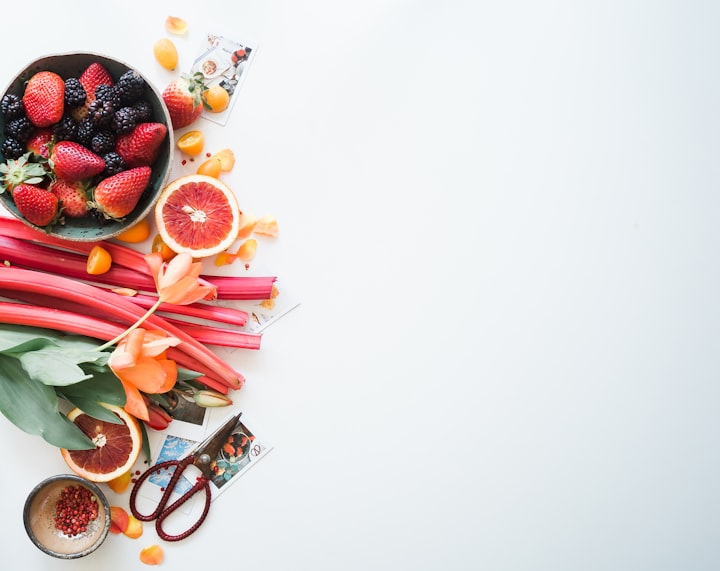The Best Diet for Humans
Nutrition experts' mistakes

On our road to eating better, or at least trying to, we did something funny: we broke science.
Science is the best approach we've ever discovered for answering issues that can't be answered by incidental observations; it expands our observations and senses to realms of the unseeable, unhearable, and untouchable; to see beyond the boundaries of our eyes and hear beyond the limits of our ears. It includes techniques for defending ourselves against our natural biases, accounting for variables we hadn't considered, and measuring the distinctions between causality and fluke.
But science was never meant to call into doubt what we already knew to be true. Science can and should encourage us to challenge answers as well, but not all answers are open to questioning.
What's an example? If you throw an apple into the air, you can be assured it will come back down, not float away.
Imagine if, between Newton's time and now, some physicist's study had led to a different conclusion, one that proved the apple had to float away. That "science" would then be incorrect. The new theory would not compel us to doubt the fate of tossed apples; but, the disparity between theory and reality would force those physicists to return to the drawing board.
In nutrition, the same is true. Every wild animal on the globe understands how to eat the food to which it has evolved. Carnivores know to eat meat, while herbivores know to eat leaves and grass, eucalyptus for koalas, and bamboo for giant pandas. We, too, are animals, and we used to know what to eat based on the same mix of cultural knowledge and instinct. Science should have only served to deepen our understanding of our own culture. Instead, we've exploited science's application to nutrition to the point where, while pandas continue to consume bamboo, people are being bamboozled.
Scientists in the field of nutrition strive for attention, and some succumb to the perils of celebrity. This leads to queries like "Which is better: low fat or low carb?" that appeal to popular culture rather than scientific value. The query is devoid of context: Peanuts and pepperoni are high-fat foods, while lentils and lollipops are high-carb snacks.
Nutrition experts' mistakes — some deliberate, many unintentional — are then exacerbated by an ungodly slew of others. Even when preaching about the dangers of confirmation bias, prominent ideologues who have built careers defending just one point of view — the evils of dietary fat or carbohydrates, for example, or the primacy of insulin over calories in weight gain — will engage in extreme confirmation bias, such as finding support for only the conclusions they've already reached.
The mainstream media thrives on feeding us false food confusion by buffeting us between mutually contradictory dietary suggestions. Their bread and butter is diet angst.
Scientists' strong viewpoints, along with the media's one-note reporting, promote the idea that any single study, no matter how insignificant, is grounds to reconsider the entire body of nutrition knowledge. This is anathema to science, which works in small steps. It's anathema to the evolution of knowledge. We end up with a churning mix when sound bites, clickbait, short attention spans, and ever-tighter news cycles collide with biomedical science.
Finally, there is us. We watch get-rich-quick schemes on old sitcom reruns, and laugh at the folly of suckers, but offer us get-thin-quick, get-healthy-quick, or reverse aging with this week’s version of dietary magic, and we go into a trance and reach for our credit cards.
As a result, we’ve bought a whole lot of high-cost nonsense about diet and science alike.
Viewed objectively and in context, the relevant science never reversed the conviction of saturated fat for crimes against our coronaries as the pop culture chatter on that topic now often contends. Rather, it revealed there was more than one way to eat badly, and we are apparently committed to exploring them all. Saturated fat, in its current form, is harmful to our health. The prevalent excess of added sugar and refined carbohydrates isn't helping either.
A calorie is, after all, a calorie. However, the greatest method to control that quantity is to improve the quality of our diet. No, neither saturated fat nor sugar are the only legitimate scapegoats for the obesity and chronic illness epidemics. We will not be saved from ourselves by any superfood or overdone dietary doctrine. All of this is not scientific; rather, it is an attack on science.
Humans who eat largely vegetables, fruits, whole grains, lentils, nuts and seeds, and drink mostly water in a balanced, time-honored assembly tend to live long, prosper with vitality, and go late and peacefully into that good night. It is not the role of "science" to undermine this established base; rather, it is the job of science to strengthen it.
Despite over-processed and allegedly scientific assertions concerning gluten and other ingredients, whole grains are excellent for individuals who are not intolerant of one or more of them. Regardless of the hyper-processed theory about lectins, beans, lentils, and chickpeas are among the most nutritious foods, reliably associated to the best of all potential health outcomes.Whatever "science" says about fructose, whole fruits protect us against obesity and diabetes. Whole nuts and seeds were excellent for us before, during, and after our ostensibly scientific obsession with carelessly losing weight. The name "carbohydrate" may imply science, but in reality it refers to all plant foods, including sugar and white flour, from root to fruit, grain to leaf. In a word, it's irrational to make such broad nutritional judgments.
Tossing an apple into the air causes it to fall back down. That is a fact that we are aware of. Catch it and consume it when it happens. It's beneficial to your health. That is something we are also aware of.





Comments
There are no comments for this story
Be the first to respond and start the conversation.